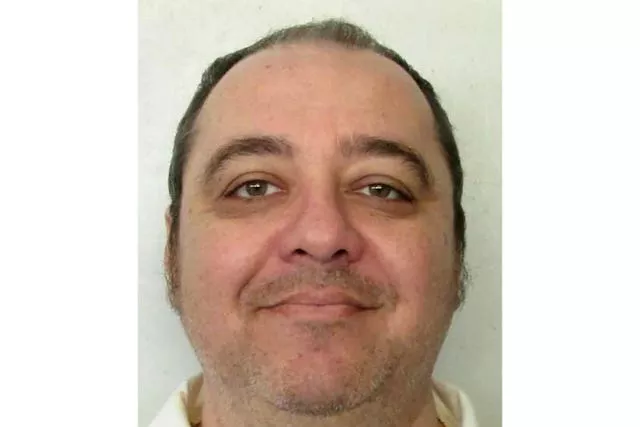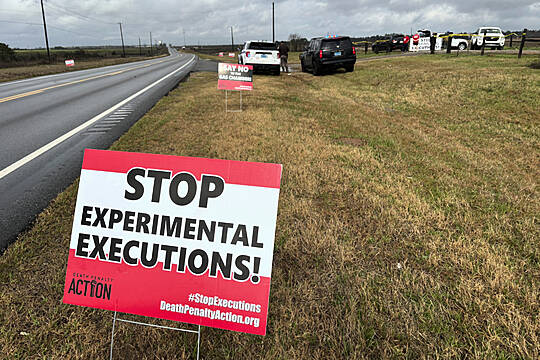The US Supreme Court ruled on Thursday that Alabama can proceed with using nitrogen gas to put a man to death, refusing to block what would be the nation’s first execution by a new method since 1982.
The decision clears the way for the state to carry out the execution of Kenneth Eugene Smith — a 58-year-old convicted killer whose 2022 lethal injection was called off at the last minute because authorities could not connect an IV line — this time by using nitrogen gas.
Smith’s attorneys had waged an unsuccessful legal battle to halt the execution, arguing that Alabama was trying to make him the test subject for an experimental execution method.
Smith is scheduled to be executed at a south Alabama prison.
Officials intend to put a respirator mask over his face and replace the air he is breathing with pure nitrogen gas, causing him to die from lack of oxygen.
It will be the first use of a new execution method since the introduction four decades ago of lethal injection, now the most commonly used one in the United States.
“The eyes of the world are on this impending moral apocalypse. Our prayer is that people will not turn their heads. We simply cannot normalise the suffocation of each other,” Smith and the Reverend Jeff Hood, Smith’s spiritual adviser, said in a statement on Thursday afternoon.
The state has predicted the nitrogen gas will cause unconsciousness within seconds and death within minutes.
A state attorney told the 11th Circuit Court of Appeals that it would be “the most painless and humane method of execution known to man.”
But some doctors and organisations have raised alarm about the state’s plan.
Smith’s attorneys asked the US Supreme Court to halt the execution to review claims that the new method violates the constitutional ban on cruel and unusual punishment and deserves more legal scrutiny before it is used on a person.

“There is little research regarding death by nitrogen hypoxia. When the State is considering using a novel form of execution that has never been attempted anywhere, the public has an interest in ensuring the State has researched the method adequately and established procedures to minimize the pain and suffering of the condemned person,” Smith’s attorneys wrote.
In the hours ahead of the scheduled execution, Smith met with family members and his spiritual adviser, according to a prison spokesperson.
He ate a final meal of T-bone steak, hash browns, toast and eggs slathered in A1 steak sauce, Mr Hood said by telephone.
“He’s terrified at the torture that could come. But he’s also at peace. One of the things he told me is he is finally getting out,” Mr Hood said.
Smith is one of two men convicted in the 1988 murder-for-hire slaying of Elizabeth Sennett. Prosecutors said he and the other man were each paid 1,000 dollars to kill Sennett on behalf of her pastor husband, who was deeply in debt and wanted to collect on insurance.
Alabama Attorney General Steve Marshall said on Wednesday night that he believes the courts will allow the execution to proceed.
Alabama plans to strap Smith to a gurney in the execution chamber — the same chamber where he was strapped down for several hours during the lethal injection attempt — and place a “full facepiece supplied air respirator” over his face.
After he is given a chance to make a final statement, the warden, from another room, will activate the nitrogen gas. The nitrogen will be administered through the mask for at least 15 minutes or “five minutes following a flatline indication on the EKG, whichever is longer,” according to the state protocol.
The execution is scheduled to begin at 6pm local time but could be delayed because of legal action or preparation. The state has until 6am on Friday to carry out the execution.
The victim’s son, Charles Sennett Jr, said in an interview with WAAY-TV that Smith “has to pay for what he’s done.”
“And some of these people out there say, ‘Well, he doesn’t need to suffer like that.’ Well, he didn’t ask Mama how to suffer?” the son said. “They just did it. They stabbed her — multiple times.”







